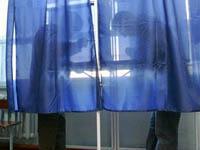What makes a good political leader?

By Romer Cherubim
Some are short. Some are tall. Some are fat. Some are thin. What makes a good political leader? In these times of austerity, many commentators would argue that a political leader needs to be able to communicate effectively a message of fiscal responsibility to his electorate. But is that all there is to it? After all, we have experienced periods of economic uncertainty before without being manipulated to feel a sense of "doom and gloom".
It is a given that all political leaders need to be able to communicate well with the voters. Indeed, you would be hard pressed to find one leader, who did not have this talent. However, there is also the "trust" factor to take into consideration. Quite simply, people have to be able to trust their leaders. The more prescient of those standing for election as political leaders have recognised this and have consciously sought to convey a "man of the people" image to those on whom they rely for support. In this regard, some have succeeded and others have failed. More importantly, the most adept politicians have understood that people have to like them. Why is the "likeability factor" so essential to a political leader's success? The reason is not rocket science.
We tend to interact better with people, whom we like. This means that we are more likely to forget any of their indiscretions. This applies in politics also. At a time when politicians are making more and more policy mistakes and errors of judgment, the ones, who will win at election time are those who can convince people that for all their failings, they are likeable and can generally be trusted. Do we have any examples to support this theory?
Besides being economically competent, President Bill Clinton is likeable. It is arguably the latter quality, which helped him serve his two terms as President of U.S.A. Similarly, President George W. Bush, although a quite different character to Clinton, has the same gift. People like Bush and can identify with him. In his case, his Southern mannerisms were a hit with the electorate and placed him in stark contrast to John Kerry, Bush's opponent for re-election as President. Again, President George W. Bush served two terms as President of U.S.A. These two Presidents benefited greatly from their personal characteristics.
Of course, not every aspiring political leader can have a winning personality. However, he should be able to understand that the electors have to be able to trust him to steer their country in the right direction. For the people to trust a potential leader, they have to like him. Trust and likeability are inextricably linked. In these days of spin doctors and photo opportunities, it would appear that politicians are in danger of losing sight of those, who are most important: the people they serve. Policies can be paraded as vote winners and some of them are. However, they are meaningless if people do not believe that the politicians touting them, can be trusted to implement them. No amount of advisers can make a politician liked!
When election time comes, we see promises made, babies kissed, hands shaked and places of worship visited. Hopefully, those aspiring to political leadership will remember while campaigning, these four words: "people are not fools!"
Romer Cherubim
U.K.
Subscribe to Pravda.Ru Telegram channel, Facebook, RSS!


